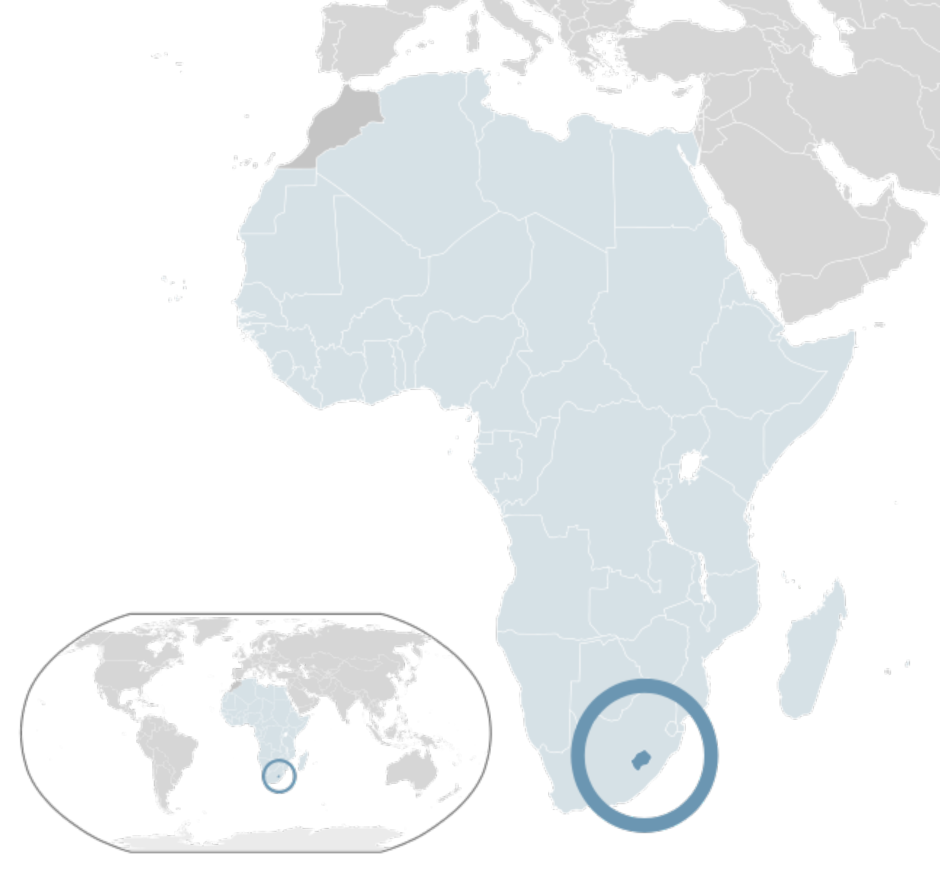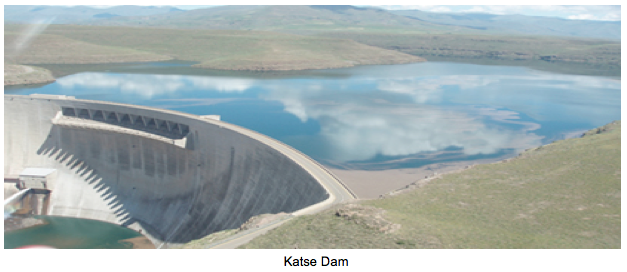Country Feature: The Kingdom of Lesotho (The Kingdom in the Sky)


LESOTHO
Location : Southern Africa, an enclave of South Africa
Population : 1,930,493 (July 2012 est.)
Total Area : 30,355 sq km
Capital City : Maseru
Languages : Sesotho (Official) (Southern Sotho), English (Official),
Zulu, Xhosa
Religion : Christian 80%, Indigenous Beliefs 20%
Natural Resources : Water, agricultural and grazing land, diamonds, sand, clay, building stone
Government Type : Parliamentary Constitutional Monarchy
Currency : Maloti
GDP (composition by sector) : Agriculture – 6.7%, Industry – 34.6%,
Services – 58.7% (2012 est.)
GDP – Real Growth Rate : 4.3% (2012 est.)
GDP per capita (PPP) : $2,000 (2012 est.)
Exports – Commodities : Manufactures 75% (clothing, footwear, road vehicles),
wool and mohair, food and live animals
Export : $1,039 billion (2012 est.)
Imports – Commodities : Food, building materials, vehicles, machinery, medicines,
petroleum products
Import : $2,469 billion (2012est.)
Sources: The World Factbook (https://www.cia.gov)
Overview
The Kingdom of Lesotho is one of the three remaining monarchies in the continent. It provides a politically stable democracy and attractive destination for tourism and business. Lesotho is a land-locked country and entirely surrounded by the Republic of South Africa. The name Lesotho roughly translates into ‘’The Land of People who speak Sesotho”. The capital city is Maseru.
The official language is Sesotho but English is widely spoken in business and commerce. The local currency is the Loti (plural Maluti) which is equivalent to the South African Rand. Daily flights are available to Moshoeshoe International Airport from Johannesburg. For visa requirements, visitors are advised to serve the internet for the Embassy or High Commission of Lesotho anywhere in the world. This is to allow for visitors to access the right procedure of applying visas depending on country of origin. Lesotho has a good record with health issues although precautions are still necessary.
The Economy
The Lesotho Highlands Water Project, which sells water to South Africa, has aided the economic growth in the country. There has also been growth in the manufacturing sector of the economy. There is a fledgling mining industry in Lesotho which has known deposits of uranium and diamond mining. Textile exports in particular are fairly strong.
Agriculture contributes about 18 % of GDP, but has remained a supplementary source of income. Agriculture accounted for 18.3% of GDP in 2002, industry 52.2% and services 29.5%. Total GDP in 2002 stood at US$729.9 million. FDI in 2001: US$117 million.
Lesotho’s main exports include ceramics, clothing, inedible crude materials, cut diamonds, footwear & footwear components, furniture, miscellaneous manufactured goods and wool. The main imports include cereals, electricity, food ingredients, machinery, medicines, miscellaneous manufactured goods, oil products and petroleum products. The framework of the external tariff of Lesotho is the two-column Harmonised Commodity Coding and Description System (HS).
Investment And Trade Opportunities
Textile and Garment Sector

Lesotho’s garment sector produces approximately 90 million knitted garments annually. It is estimated that Lesotho consumes between 22,000 and 26,000 metric tons of knitted fabric per year. Garments from knitted fabric are produced by 33 factories which collectively employ about 22,000 workers. An opportunity exists to establish knit mills to support the local garment industry in order to satisfy international market access conditions which demand a vertically integrated garment industry for continued access into these markets. Knitwear and jeans manufacturing companies in Lesotho produce large volumes of garments mainly for the US market. Opportunities exist to manufacture finishing accessories including zips and buttons designed to different customer specifications.
Packaging Material
While some cartons required for packing are manufactured in Lesotho, most of the packaging materials are imports. There is need for production of packaging material for use by households, retailers, designers, engineers for use along other traditional materials. There is also a high need in industrial and manufacturing industry.
Leather – Leather and Footwear
Foreign direct investment opportunities are huge in this sector. It include leather tanning and finishing, footwear and footwear components, leather garments, leather goods including bags, car seat covers, wallets, belts, gloves and other accessories.
Electrical – Assembly of Consumer Electrical and Electronic Appliances
Opportunities exist in the production of a wide range of finished goods from manufactured parts or subassemblies, such as engines, computers, cell phones, electrical and electronic components, radio or test equipment, machine-tool controls, and prototypes of different types of products to meet the domestic and international markets. The country boasts a pool of labor resources readily available equipped with good technical skills to work on subassemblies or the final assembly plants.
Water – Water Bottling
Lesotho’s major natural resource is water, often referred to as ‘White Gold’ by the Basotho people. The water is considered one of the most pure in the world with very little microbiological and chemical contamination which does not require intensive treatment. Many natural springs of Lesotho flow year round. They are fed by renewable groundwater reserves recharged by rainfall and cleaned by the natural environmental system with little or no anthropogenic influence. The water from most of these springs is physically, chemically and biologically clean/ acceptable as well as sparking, cool and refreshing.
Bottled water is also considered a food product internationally, thus investment in water bottling would have the benefit of creating a positive impact on public health in the region by providing safe drinking water for areas with poor water supply of water. An opportunity exists for establishing a procurement plant and equipment to bottle water for local, regional and international markets.

Development of Transport Infrastructure
Lesotho is heavily reliant on its roads network to connect it with regional and international markets. Centrally situated within RSA Lesotho government continues to invest in developing better quality transport networks in the knowledge that this has important economic and social spin offs. Lesotho’s transport infrastructure comprises a road network of 7437 kilometres, of which 16 percent is bitumen, 51 percent is gravel and 33 percent is earth and other surfaces. Therefore, investment opportunity is available in:
• Developing road infrastructure to strengthen investment to increase social and economic opportunities to gain market access – locally and with neighboring countries.
• Road construction, maintenance and upgrading creates employment, which also has positive impact on income levels.
For further details and information, please contact:
The High Commission of The Kingdom of Lesotho
No. 5, Persiaran Ampang Off Jalan Ampang
55000 Kuala Lumpur
Tel: 03 4253 2162 / 2163
Fax: 03 4253 2164
Email: Info@lesothokualalumpur.org
Website: www.lesothokualalumpur.org
